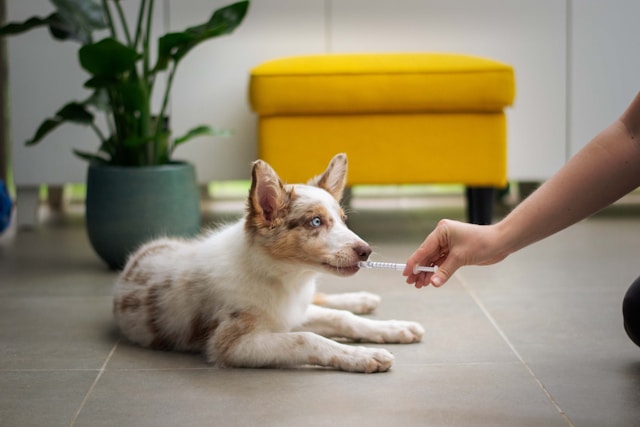As conscientious pet owners, we’re often tempted to reach for over-the-counter (OTC) medications when our furry companions exhibit signs of discomfort or illness. After all, if a particular drug or supplement works well for us humans, it must be safe for our pets too, right? Unfortunately, this line of thinking can be extremely dangerous and lead to serious health consequences for our beloved animals.
The truth is, the world of OTC medications for pets is fraught with potential risks and pitfalls. Many common household remedies that are perfectly safe for human consumption can be highly toxic or even fatal when administered to cats, dogs, and other companion animals. Navigating this treacherous landscape requires a keen understanding of which OTC products are truly pet-friendly and which should be strictly off-limits.
In this comprehensive guide, we’ll explore the dos and don’ts of over-the-counter medications for pets, empowering you to make informed decisions that prioritize the health and safety of your beloved companions.
Understanding the Risks of OTC Medications for Pets
It’s important to recognize that the metabolism, physiology, and biological makeup of pets can differ significantly from that of humans. What may be a harmless, everyday medication for us can pose serious, even life-threatening, dangers for our animal friends.
Some of the key risks associated with administering OTC drugs to pets include:
- Improper Dosage: Pets require tailored dosages based on their species, breed, age, and weight – amounts that are safe for humans can easily translate to an overdose for a smaller animal.
- Adverse Reactions: Many OTC medications contain active ingredients that can cause allergic reactions, gastrointestinal distress, or other harmful side effects in pets.
- Interactions with Existing Medications: OTC drugs can potentially interact with any prescription medications or supplements your pet is already taking, leading to dangerous complications.
- Lack of Veterinary Oversight: Without the guidance of a licensed veterinarian, pet owners run the risk of misdiagnosing the underlying issue and selecting an inappropriate OTC treatment.
Given these significant risks, it’s crucial for pet owners to exercise extreme caution when considering the use of any over-the-counter medications for their animal companions.
Identifying Safe OTC Options
While the majority of OTC drugs and supplements should be strictly off-limits for pets, there are a few select categories that may be safe to use under the direct supervision of a licensed veterinarian:
- Anti-Itch Creams and Ointments: Some over-the-counter topical treatments containing ingredients like hydrocortisone or antihistamines can be used to alleviate minor skin irritations or allergic reactions in pets, but only with prior approval from your vet.
- Stool Softeners and Laxatives: In cases of mild constipation, certain OTC laxatives or stool softeners may be recommended by your veterinarian, but the dosage must be carefully calculated based on your pet’s size and weight.
- Dietary Supplements: Some over-the-counter vitamin, mineral, or herbal supplements can be safely incorporated into a pet’s diet, but only those specifically formulated and labeled for animal consumption. Never give your pet human-grade supplements without first consulting your vet.
It’s crucial to note that even these “safer” OTC options should only be used under the direct guidance of your pet’s healthcare provider. Any attempt to self-medicate your animal companion with over-the-counter drugs or supplements can have disastrous consequences.
Strictly Off-Limits OTC Medications
According to a pet pharmacy online the vast majority of over-the-counter medications and supplements are strictly off-limits for pets, as they can pose serious, even fatal, risks. Some of the most dangerous OTC products to avoid include:
- Pain Relievers: Common human pain medications like acetaminophen (Tylenol), ibuprofen (Advil, Motrin), and naproxen (Aleve) can be highly toxic to pets, causing severe gastrointestinal bleeding, liver damage, and kidney failure.
- Decongestants and Antihistamines: OTC cold and allergy medications containing pseudoephedrine, phenylephrine, or diphenhydramine can lead to dangerous side effects in pets, including rapid heart rate, tremors, and seizures.
- Antidiarrheal Medications: Over-the-counter anti-diarrheal drugs like loperamide (Imodium) can disrupt normal gut function in pets, potentially leading to life-threatening complications.
- Cough and Cold Suppressants: Dextromethorphan, the active ingredient in many cough and cold remedies, can be extremely dangerous for pets, causing neurological symptoms and respiratory distress.
- Vitamins and Supplements: While some OTC supplements may be safe for pets, human-grade versions often contain ingredients that can be toxic, such as xylitol, tea tree oil, or high concentrations of certain vitamins.
If your pet is exhibiting any concerning symptoms, it’s crucial to resist the temptation to self-medicate and instead seek immediate veterinary attention. Your animal’s health and wellbeing should always be the top priority.
Partnering with Your Veterinarian
When it comes to administering any type of medication or supplement to your pet, the guidance and oversight of a licensed veterinarian is absolutely essential. By working closely with your animal’s healthcare provider, you can ensure that any treatment plan, whether it involves prescription medications or select OTC options, is tailored to your pet’s specific needs and carried out in the safest, most responsible manner possible.
Your veterinarian can help you:
- Accurately diagnose the underlying condition
- Determine the appropriate medication and dosage
- Monitor your pet’s response to treatment
- Make timely adjustments to the care plan as needed
Remember, the health and safety of your beloved companion should always come first. By exercising caution, seeking professional guidance, and avoiding the use of unapproved over-the-counter medications, you can help ensure your pet enjoys a long, happy, and healthy life by your side.
